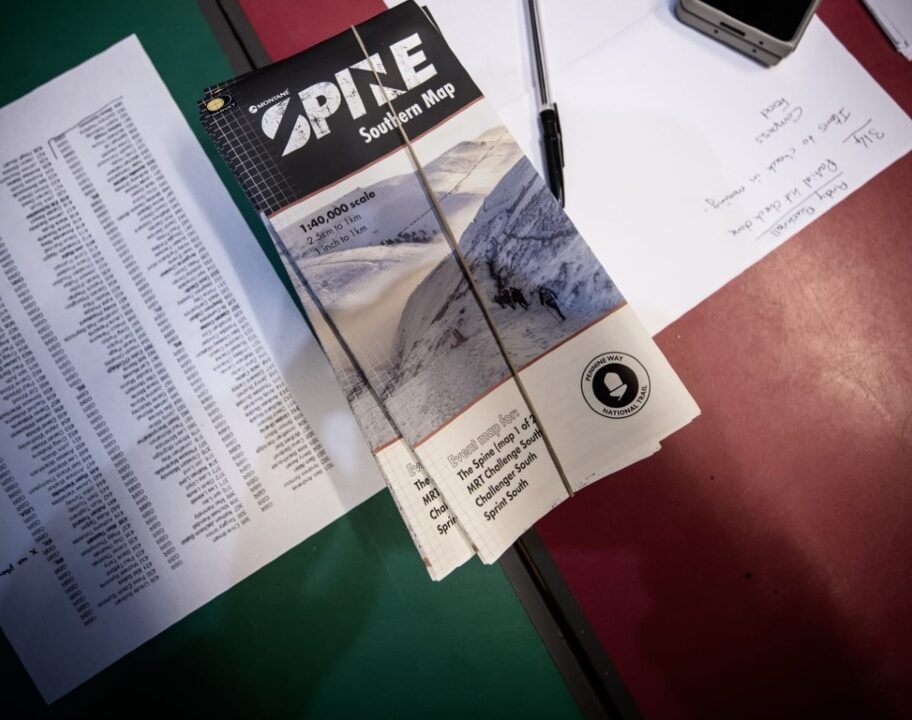If you want to run further, faster – or both. You’ve got to train smart and stay consistent. But doing that isn’t just as simple as lacing up your running shoes. Fuelling your body and getting your nutrition in check is a vital piece of the puzzle.
We all know that messing up our nutrition on race day, especially over the marathon distance, can have disastrous consequences. Whether it’s a pre-race breakfast that leaves you diving for the porta potties just a few miles in. Or hitting the wall because you haven’t taken on enough fuel to get you all the way to the finish line.
But poor nutrition can also have a major impact on your ability to train to your potential and arrive at the start line of your next running event feeling ready to go. From having the energy to execute your training sessions at the prescribed intensity, to being able to recover faster between run workouts. Getting your nutrition right can help you to unlock a whole new level of performance. But knowing how to make sure you’re getting your running nutrition on track can be tricky.
We spoke to expert sports nutritionist Dr Stefano Montanari from Total Endurance Nutrition to get his advice on how to fuel your run training. From what to eat before sessions and how to fuel during your longer runs – to what to prioritise post-workout to optimise your recovery.

What to eat before your run training – fuelled or fasted?
When you’re fitting in an early morning run workout, it can be difficult to have the time (or the inclination) to have anything to eat beforehand. So is it okay to train ‘fasted’ (i.e. running in the morning before having breakfast or any snacks) or should we always be trying to fuel up first?
Ultimately, it comes down to the length and intensity of the run session, and the individual. “Before answering this question, you should ask yourself – what is the goal of your morning session?” Dr Stefano Montanari explains. “If you are going to train at low intensities to improve your engine and rely more on fat as a form of energy, then you can do your early morning session fasted.”
“But if your session is going to be moderate to high intensity/longer than an hour then you should consider having a carbohydrate rich breakfast first. For example, porridge with a banana and some honey. Or at least have a carbohydrate rich snack before heading out, like a slice of toast or a banana. This will allow you to maintain session quality and get the most out of your session!”
If you’ve avoided eating before your early morning runs because of digestive discomfort – it might be your snack choice, rather than your stomach causing the issues. “It’s important to choose a pre-training fuel that is easily digestible, such as a small snack (banana, dried fruits, crumpets with jam) or carbohydrate drink, to avoid discomfort during exercise. Practice to find what works best for you.”
Avoiding RED-S and training your gut are key considerations when it comes to fasted training
While for the most part, if your early morning run is low intensity and fairly short you can train fasted if you prefer. There are some key considerations for certain individuals. The first is the potential to fall into the trap of chronic under-fuelling.
“Relative Energy Deficiency in Sport (RED-S) is a common issue among endurance athletes, where chronic under-fuelling can lead to hormonal imbalances that hinder recovery, training adaptation, health, and performance. Female athletes are more susceptible to RED-S which can severely impact the production of oestrogen and progesterone, key hormones that have a profound impact on several physiological functions (from cardiovascular function to bone metabolism) as well as ensuring a regular menstrual cycle*.”
“Therefore, female athletes should always consider taking in some fuel in the form of carbs prior training to avoid long-term energy deficiency.”
*PMID: 32557402.
Train your gut to be race day ready
If GI issues have interfered with your race day performances in the past, you can use your morning run workouts to train your gut – as well as your legs and your lungs. Taking in fuel before training can help to prepare your gut for fuelling during races with less chance of issues or discomfort.
“If you are a few months out from a competition, consuming foods ahead of training (and during) will help you train your gut so during your race day your stomach will be more comfortable digesting food while on the move.”
Fuelling during long runs – when to take on nutrition, and how
It might be tempting to save your energy gels for race day. But getting used to taking on nutrition during your longer runs is an important part of your training. Not only will this help you to make sure you can complete your longer runs with good quality, while also managing your overall daily energy intake. It’ll also help to train your gut to get used to taking on fuel during activity, and it gives you the opportunity to test out different fuelling options to find out what works best for you. Practicing your nutrition in training can help you to avoid race-ruining GI issues that can occur if you take your stomach by surprise with a barrage of energy gels it’s not used to on race day.
So when do you need to start factoring in intra-fuelling? “Sessions lasting over 60 – 90 minutes require fuel during the workout to maintain session quality and prevent fatigue*,” says Stefano.
“High intensity sessions – such as sprints or interval training – which last less than one hour do not require food/fuel during the session. However, they will deplete glycogen stores quickly, therefore meals before and after the session are key to optimise performance and recovery.”
*PMID: 21660838
How much carbohydrate should I take during my long runs – and what type?
Many sports nutrition gels, drinks and bars will clearly state on the packaging how many grams of carbohydrate they provide. So how many grams of carbs should you be trying to get on board during your run sessions – and is there an optimal form of carbohydrate?
The amount of carbohydrate you’ll need to take during a run depends on the duration. And the duration also influences the optimal type of carbohydrate to fuel your effort.
“The amount of carbohydrates you are aiming to consume per hour during a session will dictate the ‘best’ form of carbs,” says Stefano. “Sessions lasting 1-2.5 hours may need between 30-60g per hour of carbs*. In this case, simple forms of carbohydrate such as maltodextrin, glucose and glucose syrup will be perfectly fine to fuel your sessions.”
Combine glucose and fructose for runs lasting longer than 2.5 hours
If you’re marathon, or ultra marathon, training, once your weekly long runs start lasting over 2.5 hours, it’s important to start using a combination of glucose and fructose to maintain your energy levels. Dr Stefano explains: “For sessions lasting longer than 2.5 hours, you want to start consuming both glucose and fructose. This is because our gut has a limited capacity to absorb glucose – no more than 60 grams per hour.”
“During exercise lasting more than 2.5 hours, you are looking to exceed this threshold for effective fuelling. Ideally aiming to reach approximately 90g/h*. Therefore adding fructose is essential to provide an extra source of energy that can be absorbed by a different mechanism.”
“A 2:1 ratio of glucose to fructose is often used in sports drinks and gels, which will be ideal if you are aiming to take in 90g/h. However, if you plan to push your intake to 110-120g/h or higher – some evidence suggests that a 1:1 or 1:0.8 ratio could enable your body to oxidise even more carbohydrates compared to the 2:1 ratio*.”
*References: PMID: 21660838 / PMID: 24791914 / PMID: 32403259
Hate energy gels? Recommended alternatives
Energy gels have come on leaps and bounds in recent years, with improved textures and a variety of flavours – including flavourless options if you really haven’t got a sweet tooth. But for some runners, forcing down energy gels is still a struggle. So if you really can’t keep energy gels down – what are your options?
Stefano suggests that for some athletes, there are alternatives that can work well. “Options like energy bars, granola bars, dried fruit, sweets, chews or rice cakes provide carbohydrates in a solid form. For some athletes these can be easier to digest. Bananas are a great whole-food option for quick energy – and a medium banana provides around 20 to 30 grams of carbs.”
“Homemade energy balls made with oats, honey and nut butter can be a tasty and customisable alternative to gels, too.”
If you are choosing to fuel with real food, it’s important to look at the carbohydrate content to make sure you’re still taking on enough grams of carbs for the effort. Stefano also raises the importance of hydration: “I would still recommend bringing a water bottle with added electrolytes to keep you hydrated, especially during long workouts.”
Post-run recovery nutrition – timing and whether to prioritise protein or carbohydrate after your run workouts
It’s important to remember that as runners, our workouts are depleting our glycogen stores as well as stimulating adaptive muscle damage during training. While the fitness industry as a whole places an emphasis on protein post-workout. Endurance athletes also need to be considering refuelling with carbohydrate. “After a workout, protein helps repair muscle and carbohydrates replenish glycogen stores – so both are important for recovery.”
And actually, timing-wise it’s carbohydrates which are important to get back on board soon after a run. “While the fitness industry still often promotes that protein consumption is a must immediately following a workout. Current evidence suggests that we actually have more time to get our recovery meal or snack, as the body is primed to receive the nutrients for several hours post exercise*. Ideally we should aim for protein to be consumed at regular intervals throughout the day.”
“However, the carbohydrate intake post-workout is much more important.”
“Following a workout the first couple of hours are critical for carbohydrate consumption. During this time our muscles are primed to uptake the glucose and use it to replenish our glycogen stores.”
“This process will happen even if you consume carbs later on post-exercise but the replenishment will be at a slower and less efficient rate*. Therefore consuming carbs following an intense session is critical to speed up recovery, even more so if you have another session soon after.”
*References: PMID: 23360586 / PMID: 3132449
Ideas for re-fuelling after a run
With plenty of us fitting our run training in around work and family life, if you’re rushing around after your long run then supplementing your intake post-workout with a complete carbohydrate and protein shake can be a good option. SIS REGO is a favourite here at RUN247, which is also plant-based.
But if time permits, then a whole food approach is always good. Dr Stefano recommends that your post-workout recovery meal includes “lean protein (e.g. chicken or tofu) with whole grains or fruit to support muscle repair and energy recovery.”
Head to our running training section for more tips and advice!










